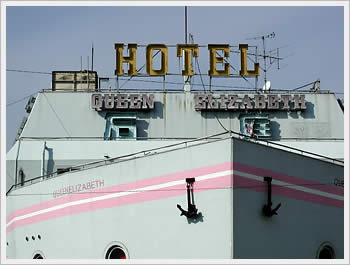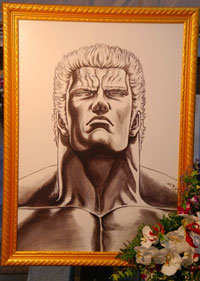The word banzai is one of the most well-known Japanese phrases in the West, up there with geisha, samurai, ninja and kamikaze on the list of words most everyone knows. It literally means “10,000 years” and is most famously a gesture of respect for the Emperor. Shouting tenno heika banzai! literally means “May the Emperor live for 10,000 years!” making it analogous to the British phrase “God save the Queen.” Although the term will forever carry the image of Japanese soldiers during World War II, it’s much older, and has been in use in China since the Tang Dynasty in the 8th Century AD. In modern day Japan, it’s mostly used as a general term of support, commonly heard at political rallies or shouted by headband-wearing employees of department stores before a big seasonal sale.

J-List is based in Isesaki, Japan, a small city near the geographical center of Japan, with a population of around 200,000, thanks to some neighboring towns that incorporated into our city a couple years ago — pretty much the only way a town’s population goes up here. Local landmarks in our city include a giant Ferris Wheel painted to look like a sunflower, a big sign forbidding anyone from bringing nuclear weapons within city limits, and a giant love hotel that looks like the cruise ship Queen Elizabeth. Because Japanese young people usually live with their parents into their 20s (or indefinitely, if they’re the oldest son or daughter), it can be difficult for couples to find free time alone to, well, you know. So they go to a love hotel, where they can “rest” (2 hours) or “stay” (all night). Many rabuho (as they’re abbreviated) are organized around a theme, such as the Taj Mahal, the Forbidden City in Beijing, Alkatraz, and even Disney and Hello Kitty. Since couples going to a hotel want privacy, the management makes sure they never need to see anyone — at some places, you can check out by phone, and put your money in a tube that will be delivered to the front desk.
When you learn a language as different from English as Japanese is, you have to get used to concepts not always translating over on a 1-to-1 basis — words just don’t match up with each other like they might between say, English and Spanish. When the Japanese talk about other planets, they often use the word hoshi, which is confusing since this word really means star, not planet. There are separate words for white ducks (ahiru) and brown ducks (kamo), and gaijin will invariably produce the wrong word 100% of the time, to his great embarrassment. There are many English loan words used here, but sometimes they’re split into two different words, to make them easier for the Japanese to use. For example, the word for a strike in baseball is sutoraiku but a labor stoppage is a sutoraiki (ki on the end instead of ku). Some other dualistisic loan words include gurasu for a glass of water but garasu for glass in a window, or bureiku for taking a break when you’re tired but bureiki for the pedal you press to stop your car.
At J-List, we carry a great line of Japanese T-shirts that feature fun, wacky and aesthetically beautiful messages in kanji. Today we’re adding some interesting T-shirts from Japan, called “Match Label” since they sport detailed tags featuring matchbook images from the Meiji Era, and a beautiful Japanese image of a lion on the back. The shirts are really well made, with thick 100% cotton fabric, hand-sewn labels, and come in size LL (about equal to U.S. size L).















